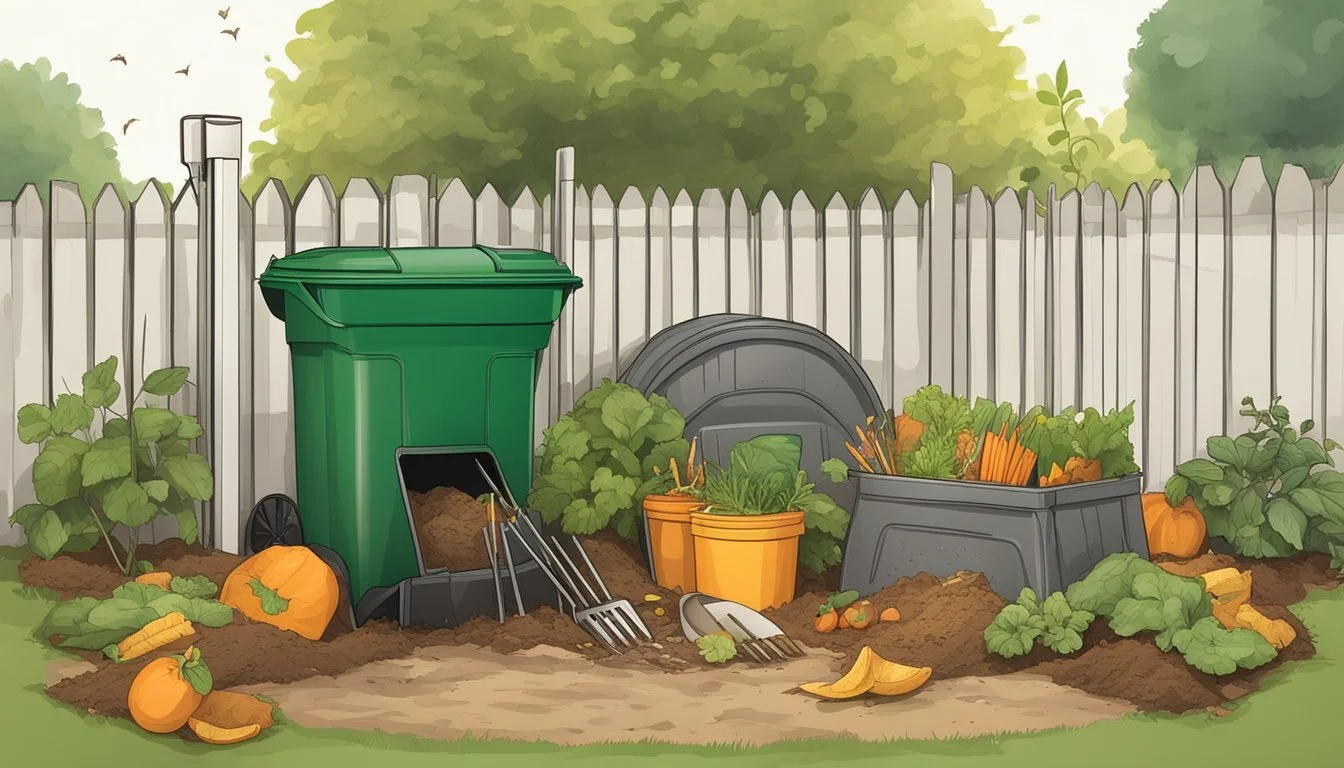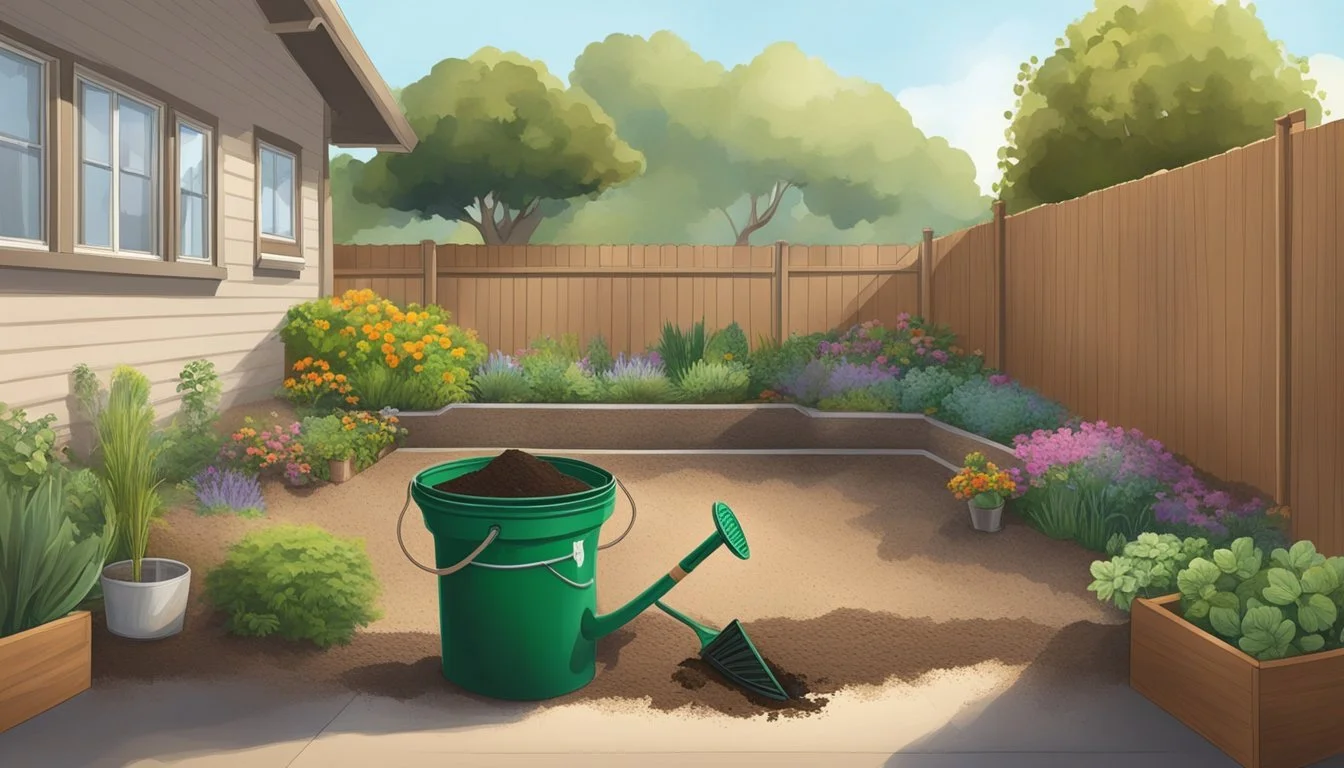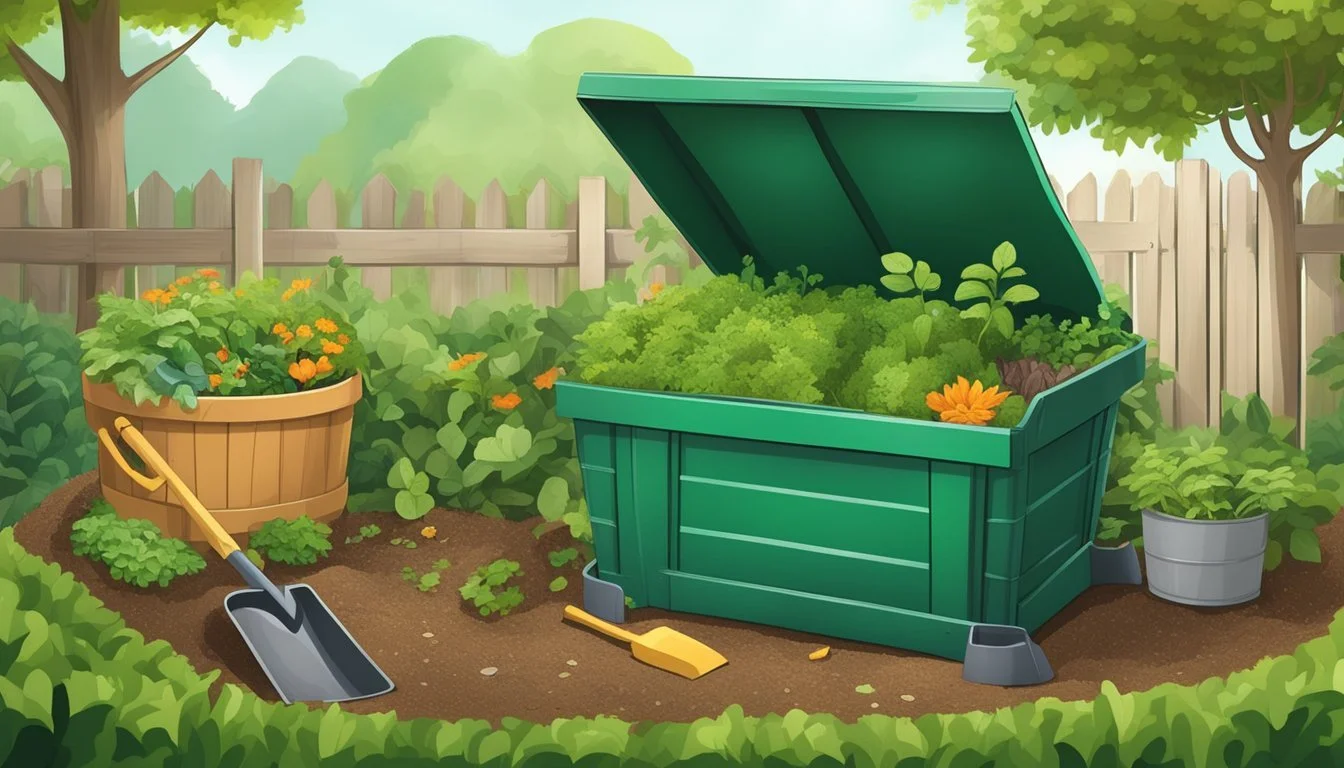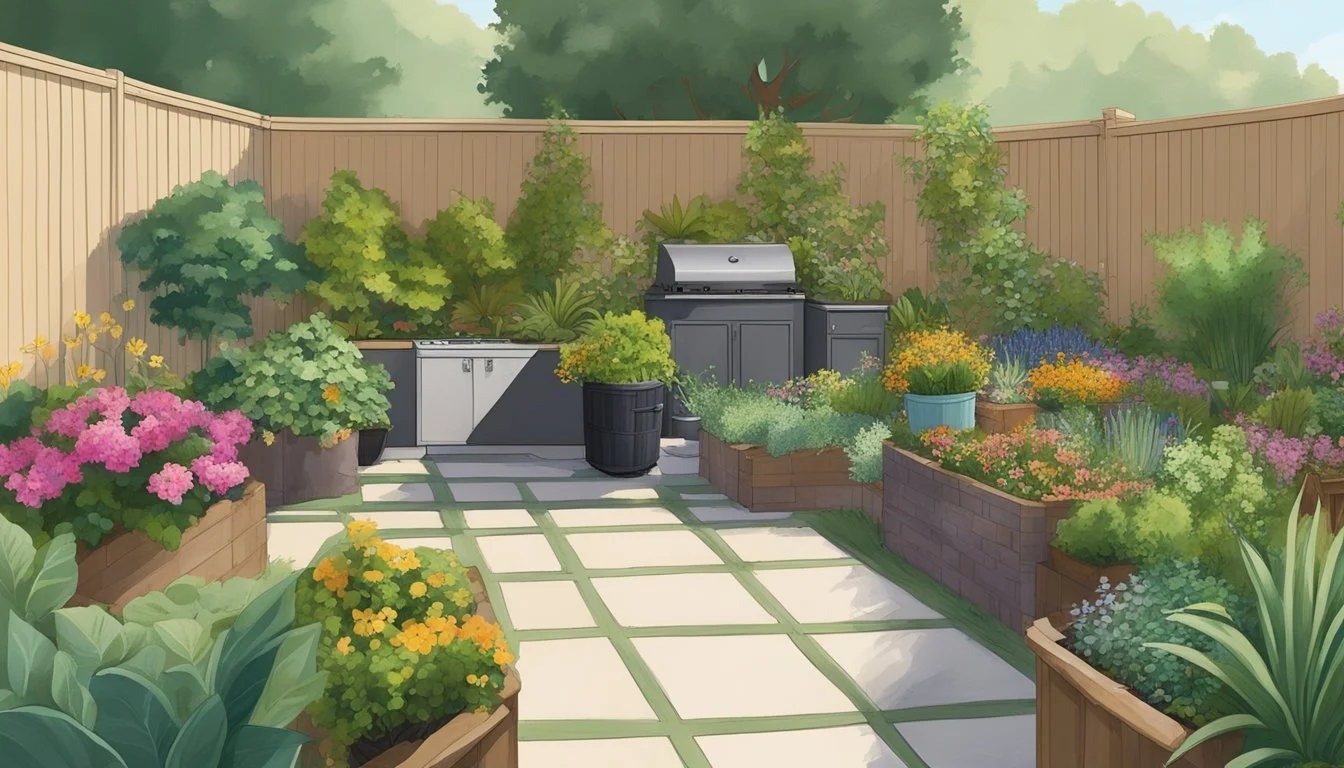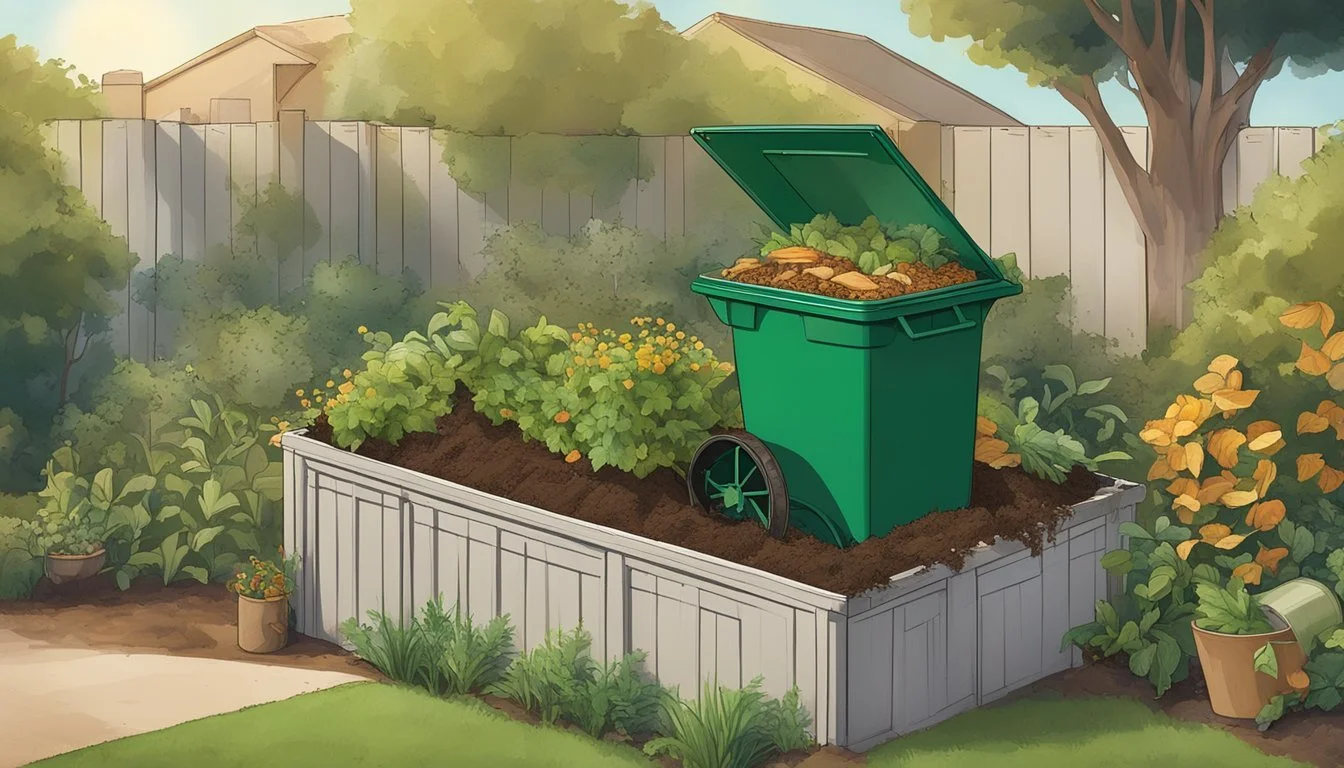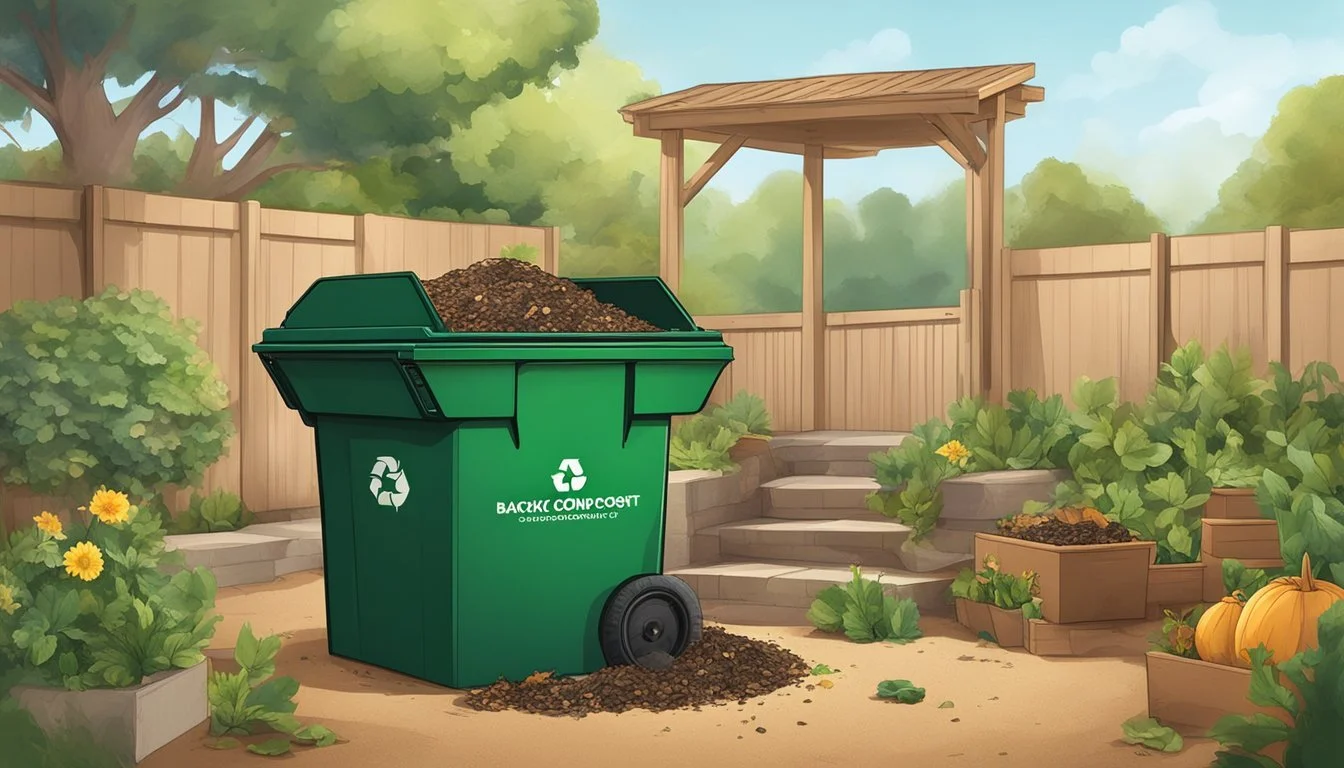Guide to Composting in Thousand Oaks, CA
Essential Tips for Local Residents
Composting is an environmentally friendly practice that transforms organic waste into valuable fertilizer, enriching soil and reducing the need for chemical fertilizers. In Thousand Oaks, California, residents have access to resources and programs tailored to foster this sustainable habit. The city provides opportunities for people to engage in composting whether they have a large backyard or a small space suitable for a countertop bin.
The City of Thousand Oaks promotes composting as a way to decrease landfill waste while empowering gardeners to improve the health of their plants naturally. By turning kitchen scraps and yard waste into compost, residents contribute to a greener community. Moreover, local programs such as Home Composting and Grasscycling are designed to assist citizens in these efforts, offering compost bins at a nominal fee.
Support for composting in Thousand Oaks extends to educational resources as well, ensuring that everyone from beginners to experienced composters can find the information they need to succeed. Community initiatives, including workshops and online guides, provide valuable knowledge on how to effectively recycle organic material. With the city's commitment to sustainability, these composting programs illustrate a dedication to environmental stewardship and resource conservation.
Benefits of Composting
Composting provides an array of advantages, particularly in reducing the impact on landfills, enhancing soil quality, and promoting environmental sustainability.
Reducing Waste Stream
Composting significantly cuts down on the waste stream by transforming organic materials that would typically end up in a landfill into valuable compost. In Thousand Oaks, residents are encouraged to recycle their food waste through composting, diverting waste and reducing the strain on landfill sites.
Enriching Soil
Compost acts as a rich soil amendment, nurturing the earth with nutrients essential for plant growth. It improves soil structure, which helps to retain water and nutrients and also provides a balanced pH and enhances the soil's microbial ecosystem. This advantage leads to healthier plant life and reduced need for chemical fertilizers.
Conserving Resources
Composting is a natural process that helps in conserving resources. By contributing to sustainability, it preserves vital organic resources and optimizes the use of water and energy by reducing the need for irrigation and synthetic additives. Creating compost also involves less energy compared to other waste management practices, making it a low-impact way to handle organic waste.
Understanding Composting Basics
Composting is a systematic approach to recycling organic materials into a nourishing soil amendment, which is a boon for gardeners looking to enrich their soil. This section dissects the fundamentals of composting in Thousand Oaks by exploring various methods, suitable materials, and the composting process itself.
Composting Methods
There are several methods of composting to choose from, each designed to suit different needs and constraints. One can opt for a simple heap, where organic materials are piled and left to decompose or construct a compost bin from wood or recycled materials. Adjusting for local climate, a Thousand Oaks resident might consider a closed bin system to conserve moisture and retain heat, facilitating faster decomposition. Vermicomposting is another technique that leverages worms, particularly effective for indoor composting or those with limited space.
Materials for Composting
A successful compost pile requires a balance of 'greens' and 'browns'. Greens are nitrogen-rich materials like food scraps and grass clippings, while browns supply carbon and include items like dry leaves, straw, or shredded paper. Avoid adding meats, dairy, or oils, which can attract pests and inhibit decomposition. It's imperative to remember that only organic materials should be added to compost to ensure that it can be used to enrich the soil effectively without any harmful residues.
Greens Browns Fruits and vegetable scraps Dry leaves and branches Coffee grounds and tea bags Cardboard and newspaper (shredded) Fresh grass clippings Straw and hay Garden plants Sawdust (from untreated wood)
The Composting Process
The composting process relies on four key elements: organic material, microorganisms, air, and moisture. Microorganisms break down the organic material, a process that produces heat and, consequently, further speeds up the decomposition. Regularly turning the compost pile introduces air and ensures even decomposition. Moisture is also essential; the material should be as damp as a wrung-out sponge to create an ideal environment for microorganisms. Residents in Thousand Oaks can apply these principles to maintain a healthy balance and achieve a rich, earthy compost.
Setting Up Your Compost System
Setting up a compost system in Thousand Oaks is straightforward when you have the right equipment and know the essentials of maintenance and troubleshooting.
Choosing a Compost Bin
A Compost Bin is essential for managing organic waste. Residents can acquire a bin suited to their needs—traditional bins for compost piles or specialized worm boxes for vermicomposting. The former is ideal for yard waste, while the latter utilizes red worms to break down kitchen scraps more efficiently.
Location and Maintenance
The compost bin or pile should be positioned in a well-drained spot with good air circulation but sheltered from too much sun or rain. Maintenance requires regular turning to aerate the pile and speed up the composting process. One can use a garden fork or a specialized aeration tool to mix the materials.
For maintaining a worm box:
Keep the environment moist like a wrung-out sponge.
Feed the red worms regularly with kitchen scraps.
Ensure the worm box stays at a temperature suitable for worm activity.
Troubleshooting Common Issues
Troubleshooting common composting problems involves monitoring the pile for moisture, smell, and temperature. An optimal compost system doesn't emit a foul odor. If it does, it might be too wet or lack oxygen. Adjust by adding dry, brown materials and turn the pile. Attend a Composting Workshop in Thousand Oaks to gain more in-depth insights and hands-on experience.
Composting in Thousand Oaks
Composting is a key element of sustainable living in Thousand Oaks with the city providing support, community programs, and resources to encourage this eco-friendly practice.
City Regulations and Support
The City of Thousand Oaks has implemented regulations to promote composting within the community. As of January 1, 2022, it requires residents to recycle their food waste. To support these regulations, the Public Works Department offers the FreeGarden EARTH compost bin, which is convenient and easy to use with its one-piece construction and 82-gallon capacity. For more details on obtaining a bin, residents can visit the official Thousand Oaks composting page.
Community Composting Programs
Residents of Ventura County can participate in community composting programs, such as those facilitated by workshops conducted by the Master Gardener Program. These workshops are designed to provide education and practical advice on effective composting techniques, which take place at various facilities across the region. An example of a past event involved a workshop held at True Color Gardens in front of the Goebel Adult Community Center, emphasizing the community's commitment to sustainable practices. Further information can be found through articles like Eco-tip: Composting workshops.
Local Composting Resources
For individual households looking to start or improve their composting efforts, the City of Thousand Oaks, alongside Athens Services, delivers educational content and resources. These are aimed at aiding residents in setting up and maintaining a successful compost system at home. Moreover, businesses are also catered for, with the city providing options to donate excess food and reduce waste. Guidance on composting can be accessed from valuable resources provided by the city and other environmental organizations. Through conscientious management of organic waste, residents and businesses can contribute to a greener Thousand Oaks.
Advanced Composting Topics
Advanced composting techniques can significantly enhance the efficiency and benefits of the process. Residents of Thousand Oaks have access to resources and methods to take their composting practices to a more proficient level, whether they reside in apartments or own larger properties that enable them to manage vast amounts of organic waste.
Vermicomposting for Apartment Dwellers
Vermicomposting, or worm composting, offers a compact solution for apartment dwellers without access to large outdoor spaces. This method involves the use of specific types of worms, usually red wigglers, to break down organic kitchen waste into nutrient-rich compost. The Earth Machine composter is a popular choice for its 10-year warranty and ease of fitting into any vehicle, making it convenient for those living in confined spaces to start vermicomposting.
Composting Large Quantities
Managing composting in large volumes, such as a cubic yard or more, requires a systematic approach to maintain the right balance of moisture, aeration, and temperature. Community gardens, like the Las Flores Community Garden, often have larger setups for residents to compost their organic waste. Large scale composting can also benefit from workshops, such as those offered in Thousand Oaks, that can teach advanced composting techniques.
Compost Use in Landscaping
Using compost in landscaping not only enriches the soil but also helps in conserving water and suppressing diseases. Landscapers in Thousand Oaks can apply compost as a top dressing to lawns or incorporate it into garden beds to foster plant growth. The local community encourages the use of compost to enhance soil structure and fertility, supporting a sustainable approach to gardening and lawn care.
Composting and Environmental Responsibility
In Thousand Oaks, composting is not just a waste management technique; it is a commitment to environmental stewardship. Implementing composting practices supports the city’s Climate Action Plan and promotes sustainability.
Climate Action and Composting
Thousand Oaks takes climate action seriously, with composting playing a fundamental role. The city recognizes that composting reduces greenhouse gas emissions by diverting organic waste from landfills where it would decompose anaerobically, releasing methane. By converting organic waste into compost, a valuable soil amendment, the city turns what could be harmful waste into a resource that enhances soil health and sequesters carbon.
Greenhouse Gas Reduction: Composting efforts directly contribute to the goals outlined in the Climate Action Plan.
Soil Health and Carbon Sequestration: The use of compost improves soil structure, thus capturing more carbon dioxide from the atmosphere.
Composting as a Business Initiative
Local businesses in Thousand Oaks are encouraged to participate in the city-wide movement towards sustainability. On the forefront are green businesses that embrace composting, which ultimately cuts down on the waste sent to landfills, lowers their carbon footprint, and positions them as eco-friendly leaders in the community.
Green Business Recognition: Enterprises actively composting can be recognized as part of Thousand Oaks' commitment to environmental excellence.
Cost-Effective Waste Management: Reducing landfill fees by composting can be economically beneficial for businesses.
Engaging the Community in Composting
To engage residents in composting practices, Thousand Oaks offers resources and guidance, bolstering community involvement – key to the success of the initiative. The city highlights Earth Day and similar events to promote awareness and education on the importance and ease of composting.
Community Resources and Education: Learning opportunities and compost bin programs enable residents to start composting at home.
Earth Day and Celebration: Special events provide platforms to discuss and improve composting participation.
Through these actionable steps, Thousand Oaks demonstrates a strong commitment to reducing its environmental impact and fostering community involvement in its sustainability goals.
Composting Guidance and Education
In Thousand Oaks, residents have access to a range of programs and resources designed to educate and support them in composting efforts. These initiatives ensure that individuals are well-informed and can contribute to the city's sustainability goals.
Workshops and Training
The City of Thousand Oaks encourages residents to attend compost workshops provided by the Public Works Department. These sessions offer hands-on training, covering the basics of composting, methods to optimize the composting process, and best practices for maintaining a healthy compost system. Most notably, residents can participate in the Master Gardener Program, which includes workshops led by experts from the University of California. Dates and sign-up information for workshops are frequently updated on the city's official webpage for sustainability.
Educational Material and Outreach
A wealth of educational resources is available both online and in local community centers. These materials include guides on compost bin selection, tips for balancing nitrogen and carbon elements in a compost pile, and troubleshooting common composting challenges. Residents can also find informative brochures and flyers that further the reach of composting knowledge throughout the community. For detailed instructions and advice, individuals can refer to the comprehensive Gardening Resources page provided by the city.
Engagement with Universities
Thousand Oaks actively collaborates with universities to promote and refine composting practices. The partnership with the University of California system enhances the city's composting programs through ongoing research and shared expertise. Students and faculty alike participate in community outreach, ensuring that the most current and effective composting techniques are communicated to residents. This cooperation underpins the city's dedication to maintaining a healthy environment and reducing waste in landfills.
Waste Management in Thousand Oaks
In Thousand Oaks, CA, waste management initiatives include comprehensive trash and recycling services, proper hazardous waste disposal, and yard trimmings and organic waste collection, ensuring environmentally responsible handling of various kinds of waste materials.
Trash and Recycling Services
Thousand Oaks provides residents and businesses with robust trash and recycling services to maintain sustainability and environmental health. Curbside collection services are operated efficiently to handle everyday disposal needs. The recycling program accepts items such as water bottles, shampoo containers, and laundry detergent bottles, which are expected to be rinsed before recycling. For detailed guidelines, residents can refer to the Residential Recycling Guide.
Waste Collection:
Curbside trash collection on weekly basis
Recyclables collected separately
Hazardous Waste Disposal
The city takes the disposal of hazardous waste very seriously, offering designated drop-off events for items that cannot be processed through regular trash or recycling services. This includes electronic waste, household chemicals, and batteries. Such events help prevent contamination of landfills and ensure safe waste management practices. Information on hazardous waste drop-off can be obtained from Thousand Oaks Organic Waste Collection.
Hazardous items:
Electronics, batteries, chemicals
Designated drop-off events for safe disposal
Yard Trimmings and Organic Waste Collection
Yard trimmings and organic waste, including leaves and grass clippings, are processed differently from general trash to promote composting and reduce landfill usage. The city encourages home composting and practices grasscycling, offering residents compost bins for purchase. This waste is converted into compost, which in turn supports local agriculture and gardening, contributing to the city's greener footprint. Learn more about the program from the city's Home Composting and Grasscycling information page.
Organic Waste:
Home composting bins available
Grasscycling promoted for lawn maintenance
Additional Composting Considerations
When considering a composting setup in Thousand Oaks, CA, certain elements need particular attention such as managing pests, adapting to seasonal changes, and understanding local regulations. These factors are critical for maintaining an effective and compliant composting practice.
Pest Management
Pest management is crucial for a successful compost system. Flies and rodents are the most common pests in compost piles. To deter these, one should always cover food scraps with leaves or weeds which act as a carbon-rich layer, reducing odors that attract pests. Further, maintaining a balanced compost with proper aeration and moisture can prevent pest infestations.
Composting During Winter
Even during winter, composting can continue effectively. Composting in colder weather slows down but by increasing the size of the compost pile, it can retain more heat. Adding layers of insulating materials like leaves or straw can help maintain the necessary temperatures for decomposition.
Regulatory Aspects of Composting
Local regulations govern the process of composting to ensure environmental safety. In Thousand Oaks, one must follow guidelines set forth to minimize attracting pests and to maintain public health standards. The City provides resources to enable residents to comply with these rules effectively, like their discounted backyard compost bin program, which can be ordered here.
Appendix
This section provides an essential compilation of composting resources available in Thousand Oaks, including facilities, regulations, and educational materials to guide residents and businesses.
List of Composting Facilities
In Thousand Oaks, residents can take advantage of local composting through establishments such as the American Organics compost facility. This facility processes organic waste collected in the area into compost useful for gardening and landscaping. For home composting supplies, residents may also contact the City of Thousand Oaks Public Works Department for compost bins.
Local Composting Ordinances
Thousand Oaks enforces specific composting ordinances to maintain sustainability within the community. These regulations include guidelines on organic waste collection and the requirement for businesses to collaborate with Athens Services for composting services. Understanding these ordinances is crucial for compliance and contributing to the city's waste reduction efforts.
Resources for Further Reading
For those looking to deepen their understanding of composting practices, the city’s official website offers gardening resources and detailed guides on waste reduction. Educational resources on the Athens Services website outline the proper disposal, recycling, and composting methods for various materials, fostering informed practices within the community.

